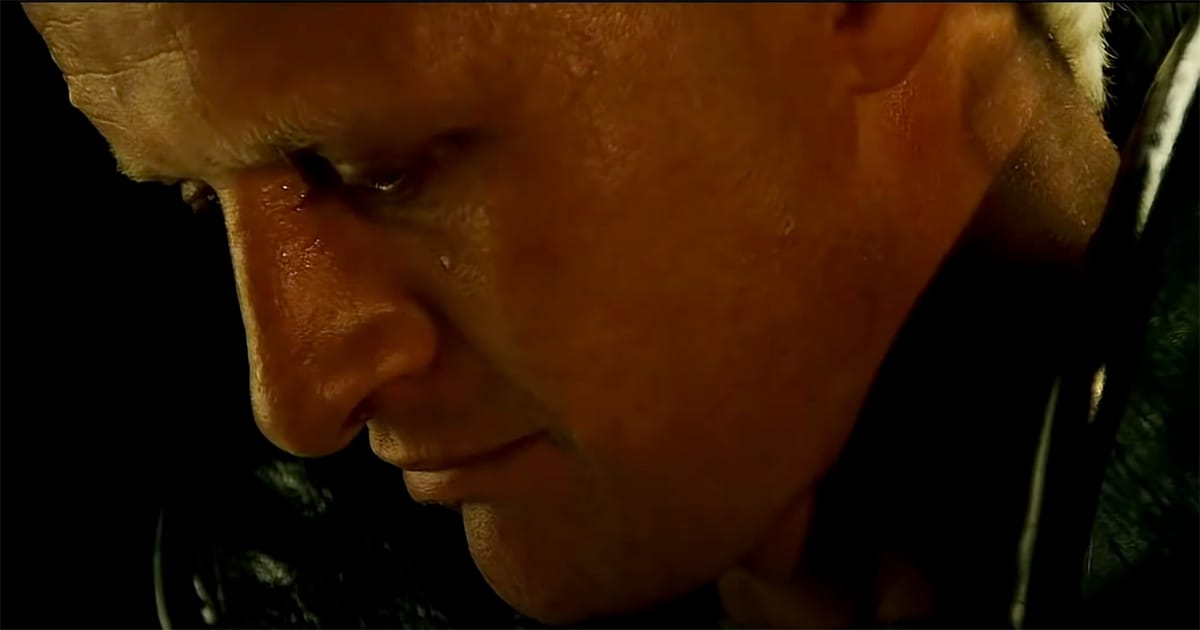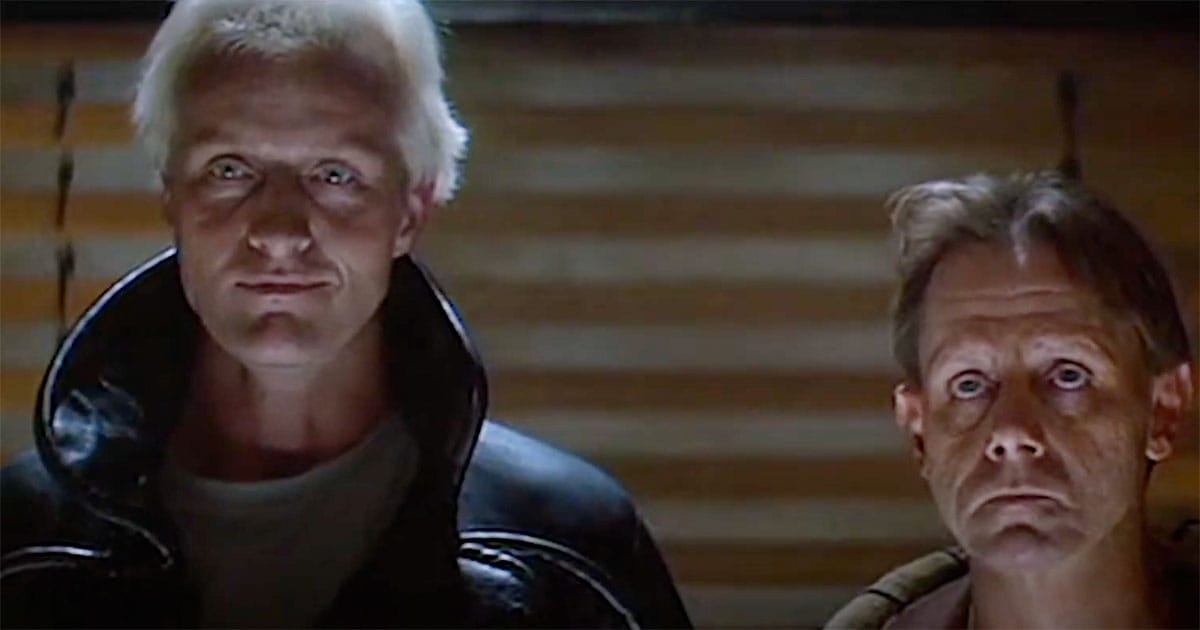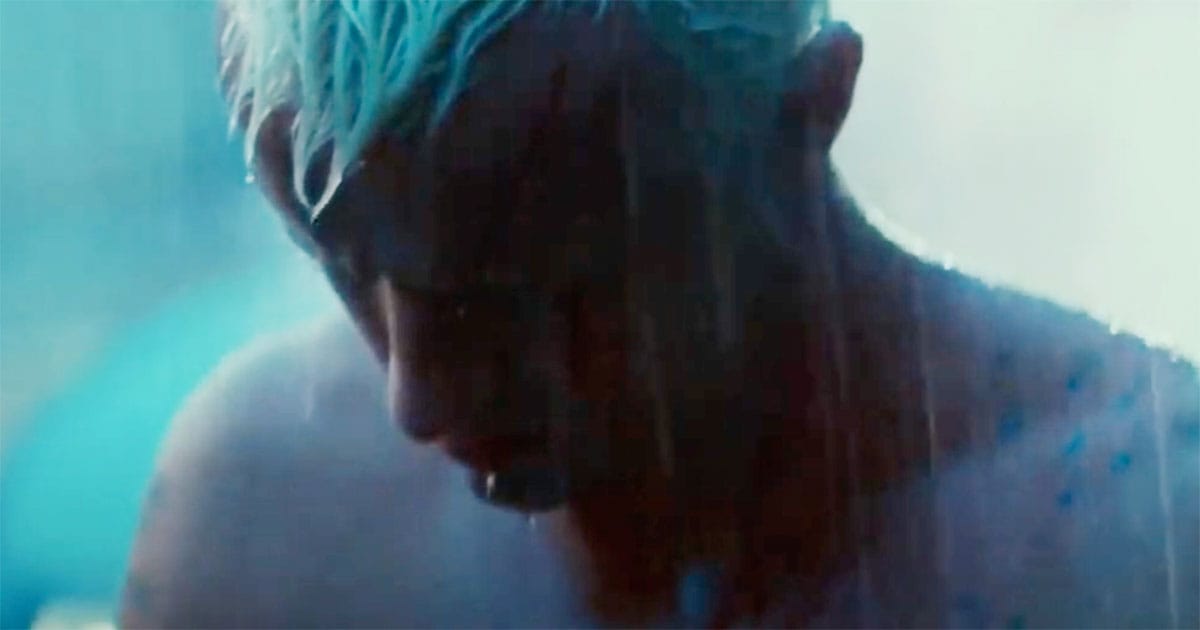What if Roy Batty Had Lived Past His Lifespan?
What if Roy Batty had more time? This thoughtful exploration of "Blade Runner" reimagines Batty’s fate, revealing how more time could have reshaped his legacy and the world he tried to understand.

In the closing moments of "Blade Runner," amidst rain and ruin, Roy Batty—replicant, fugitive, and creation of the Tyrell Corporation—delivers a final soliloquy that has echoed through science fiction for decades.
Once introduced as a menacing antagonist, Batty emerges by the film's end as something far more profound, a tragic figure confronting his own impermanence. His famed "Tears in the Rain" speech is not a threat, nor a plea, but a eulogy for memories destined to vanish.
Batty's programmed four-year lifespan frames every decision he makes, every rebellion he leads, and every act of mercy he offers. He is not merely fighting for survival. He is pleading for meaning in a world that denies him the time to find it. In this light the question arises naturally, almost hauntingly, what if Roy Batty had more time?
This thought experiment opens the door to new understandings not only of Batty as a character but of the entire moral structure underpinning "Blade Runner." If time is the crucible in which humanity is formed, what sort of man might Batty have become if allowed to endure just a little longer?
Warrior and Philosopher
Roy Batty enters "Blade Runner" not with quiet reflection but with urgency. A Nexus-6 replicant engineered for off-world combat, Batty possesses superior strength, heightened intelligence, and a hardwired expiration date. He was built to follow orders, to fight, and to die, all in service of humans who viewed him as disposable technology. Yet from the very beginning of his appearance, Batty behaves as something more than a tool. He leads, he questions, and above all, he seeks.
The contradiction at the heart of Batty's character is this—he is created to destroy but spends his final days grasping for understanding. His journey is not one of vengeance alone. It is a search for meaning within a system that refuses to grant him the dignity of a full life. When Batty confronts his creator, it is not simply to kill, but to demand an explanation. Why must death be inevitable, especially for those who have only just begun to live?

Nowhere is Batty's transformation more apparent than in his final act. He saves Rick Deckard, the man sent to kill him, and in doing so, reclaims his agency not through violence, but through mercy. His closing words are a reflection not of circuits and programming, but of memory and loss. In this moment, the audience no longer sees a machine. They see a man—flawed, reflective, and deeply aware of what it means to perish.
More Time, More Humanity
To imagine Roy Batty with more time is to imagine a different kind of story, not one of pursuit and expiration, but of growth and discovery. His final acts in "Blade Runner" do not suggest the arc of a villain. They hint at the beginning of a transformation. With an extended lifespan, Batty might have continued along the path he began in his final hours—moving away from instinct and survival, toward contemplation and purpose.
Given time, it is not difficult to believe that Batty could have developed deeper empathy. His decision to spare Deckard already hints at emotional depth. These are not the behaviors of a machine bound by instruction. They are the choices of a man trying to define himself. With time, he might have turned his formidable intelligence toward creative pursuits. Perhaps he would have written, painted, or composed—searching not just for answers, but for ways to express his perspective on a world that had cast him aside.
More time may have distanced him from violence. As the urgency of his short life faded, so too might the rage. He could have become a bridge between replicants and humans, a voice for peace, or a philosopher of artificial being. His leadership might not have been military, but moral. The tragedy of Roy Batty lies not in what he did, but in what he might have become. With more years, he could have proven that the soul is not the property of the natural-born. It is the product of longing, memory, and the will to be more than what one was made to be.

Implications for the World of "Blade Runner"
If Roy Batty had lived beyond his programmed limit, the world of "Blade Runner" would have been forced to confront a new and unsettling truth. The boundary between man and machine would blur even further, not through scientific advancement, but through moral awakening. Batty's continued existence would challenge the very structure that labeled him property. His evolving consciousness, his capacity for mercy, and his hunger for meaning would cast a long shadow over the Tyrell Corporation and its cold calculus of creation.
Tyrell built Batty to be superior in every way except lifespan. It was the company's fail-safe—a way to enjoy the benefits of artificial life without risking autonomy. But with more time, Batty could have grown into something that no corporation could manage, a being with not only intellect and strength, but wisdom and will. The ethical dilemma becomes plain. Can one own what one cannot understand?
Narratively, a living Roy Batty would shift the focus of the story. Deckard's pursuit might falter, not from failure, but from recognition. The hunter would begin to see not quarry, but kin. Batty might even become a legend, a mythic figure among replicants and dissidents—a symbol of what artificial beings could aspire to become.
His example could inspire a quiet revolution, not of violence, but of vision. A movement seeking dignity, not domination. In surviving, Batty would not merely extend his own story. He would reshape the stories of everyone around him.
Echoes Beyond the Rain
Roy Batty's final words—spoken in the dying light of a rooftop storm—linger long after the credits roll. He speaks of moments lost like "tears in rain," and in doing so, reminds us that memory, not machinery, defines the soul. The real tragedy is not the expiration date encoded in his cells. It is the future he will never reach, the man he might have become.
Asking what might have happened if Batty had more time does more than stir sympathy. It exposes the depth of his character and the richness of the world he inhabited. It reminds us that great science fiction does not merely predict the future. It illuminates the human condition through the lens of the imagined.
In Batty, we see not just a replicant, but a mirror. Through that mirror, we confront the timeless question—what could we become if only given more time?

